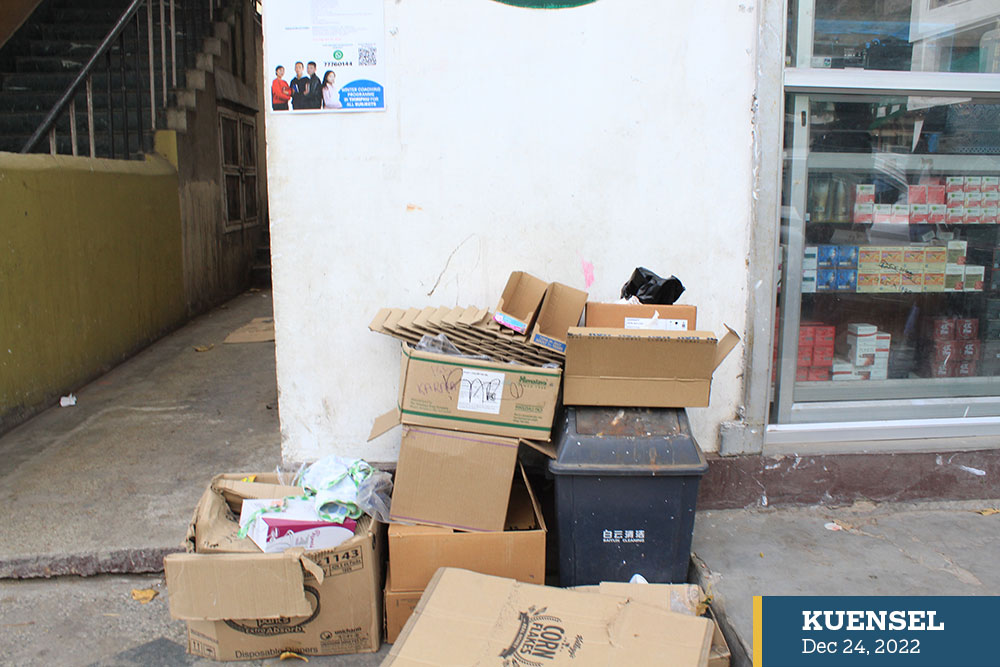Chhimi Dema
A street hawker in Thimphu was fined Nu 500 during a waste segregation inspection last month.
She claimed that she was fined for other people’s waste. “I picked up some plastic cups around me to dispose of when the garbage truck came. There was some leftover porridge in the cup and I was fined for it–failing to segregate dry and wet waste.”
In November, strict monitoring of proper waste management was carried out in the city. Individuals, business owners, and offices were fined for failing to adhere to waste prevention and management regulations.
While many applauded the strict waste monitoring, some Thimphu residents said there is a need for awareness and warning before they are fined.
“I was trying to clean up the space around me. Now I am discouraged to pick any waste; I worry I will be fined again,” the street hawker said.
A resident in Thimphu was fined in November for putting diapers and sanitary pads as dry waste.
He said that he was aware of dry and wet waste segregation but throwing away diapers and sanitary pads with wet waste was new. “No one told us that diapers, sanitary pads, and hair have to be thrown with kitchen waste.”
According to the Waste Prevention and Management Regulation 2012, Thromde is responsible for ensuring that no hazardous or infectious waste is mixed with other types of waste.
Greener Way’s founder Karma Yonten, said that as there is no collection for hazardous waste currently, people were asked to throw the diapers and pads along with wet waste to be taken directly into the landfill like the wet waste.
Some of the dry waste collected from the city are recycled.
Karma Yonten said that waste management agencies discussed that after the dry and wet waste segregation culture is strong then the waste management committee would introduce hazardous waste collection.
Dechen, a resident, said that segregation at source is pointless if they end up in the same landfill.
“I segregate pet bottled, cans, papers, and plastic at home but the garbage truck collects all waste together,” she said.
Without proper facilities to collect the waste it seems impossible to maintain the country’s zero-waste initiative, Dechen added.


